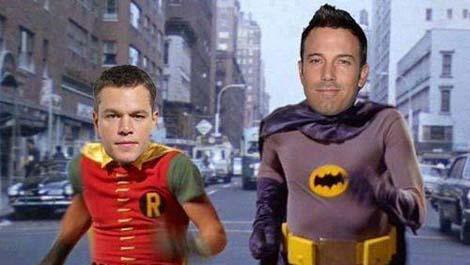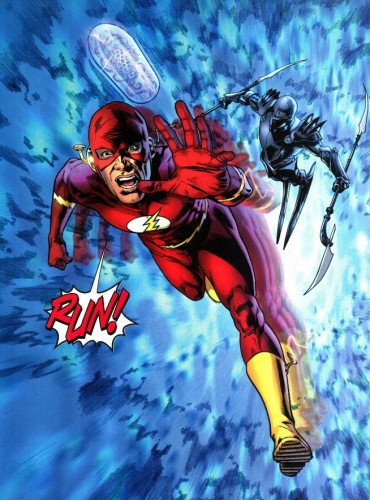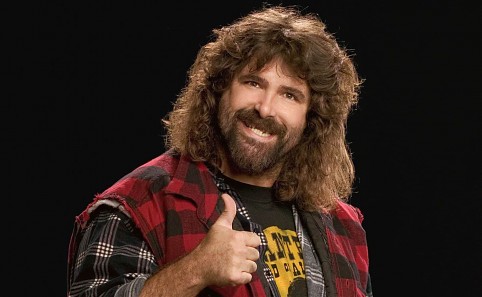Mild-mannered reporters by day, Greg Phillips and Nick Duke share an intense love of comic books that has made them the Hard-Traveling Fanboys. While they enjoy escaping into the fantasy world of comics, once in a while it’s important to snap back into reality. In Reality Check, the fanboys will look at a topic of interest to the comic book industry that takes place outside the pages of a book.
Nick: Welcome back, loyal readers, to the pages written by the Hard Traveling Fanboys. After a brief health-related hiatus, we are back this week with a new installment of Reality Check, a column where we take on some of the issues facing the comics industry that we hold so dear.
This week, we’re kind of taking on ourselves, as we’re going to discuss the internet comics community and the role it plays in today’s coverage of comics and announcements made by publishers. We’ll start by discussing some of the more notable examples of internet outcry and then next month, we’ll delve into the topic of whether internet comics fans really represent fandom as a whole and what, if anything, the major publishers can do to please the ICC.
Greg: As our pal and fellow PTB Comics writer Todd Weber wrote about last week, it took only minutes for online comic book fans to begin raging after Warner Bros. announced Ben Affleck as the new Batman. In the days since, many have pointed out the unintentional hilarity involved in comic book nerds overreacting to an Oscar winner playing a superhero. But what those on the outside may not understand is that this explosion of online rage is a weekly occurrence in online comic circles. And frankly, the Batfleck backlash was tame compared to some of the things we’ve seen in the last decade-plus online, especially since the advent of Twitter.

Nick: One of the main reasons I’m not more active on Twitter is the amount of complaining that goes on there, mainly about wrestling and comics. Of course, reading the Facebook comments left on some of the major publishers and comics news sites isn’t much better.
Our generation is unique because we kind of grew up as the Internet evolved, meaning we’ve seen the kind of behavior the anonymity the Internet lends can lead to. When did you first become aware of the subset of fandom that exists on the Internet?
Greg: I first gained access to the Internet in late 1999, when I was a freshman in high school. It was around that time that I became aware of and involved in the so-called Internet Wrestling Community. So I was pretty well entrenched in that for several years before I became aware of online comics discussion. I probably started reading comic reviews and participating in discussions shortly after I began reading comics again, with Jeph Loeb and Jim Lee’s “Hush” storyline in Batman. I mainly read reviewers at the time and stayed off the message boards in those days, though. I didn’t discover just how similar the online wrestling and comic communities were (i.e. lots of snark over reasonable discussion) until probably 2004 or so, around the time of Infinite Crisis and House of M.

Nick: I think mine was around the time of Marvel’s Civil War crossover event, which is the first time I was buying more than 10 books a month and trying to keep up with what to read and what not to read. I remember reading positive reviews of books that I also wound up enjoying, yet seeing comment after comment talk about how awful they were. And I think you touched on it a bit, the comments never seem to be discussion-based, but rather tend to be some form of “Teh book suckkkkssss. This is not MY (insert character here.)”
Greg: While in some ways the IWC and ICC are misnomers — there is no universal opinion shared among all online fans — one look at the comments section of most major comics websites or the Facebook comments left on the major comic companies’ and media’ pages indicates a never-ending abyss of negativity. Some people seem to respond to every link in an attempt to out-snark themselves, and some even stoop to personal attacks on those who disagree. Many comics creators have even faced death threats for daring to institute the slightest change to a character.
Nick: I think a good recent example is Dan Slott, the current writer of Marvel’s Superior Spider-Man. When Slott wrote the story that seemingly brought an end to Peter Parker and instituted Otto Octavius as the new Spider-Man, fans went insane. I admit being one of the fans who thought it was a bad move, but he got numerous threats of violence on social media. While the threats were likely intended to be hyperbole, it still doesn’t justify such actions when discussing comic books.

Greg: That’s a perfect example. Disagreeing with a creative direction or disliking a writer’s work does not justify attacking the person’s character or threatening him or her. In 90 percent of these cases, the person making the threats would never do such a thing in person. Gail Simone and other writers have talked about meeting fans who have issued vicious attacks online, only for them to be shy and timid in person.
Nick: It isn’t limited to just comics, though. Basically anytime any kind of information is released about a comic book movie or television show, there is an inevitable uproar from a segment of the fanbase.
Greg: “It isn’t exactly like this exact issue of the comic I like!”
Nick: “The Joker should be permanently white!
Greg: “They changed something!”
Nick: There are lots of examples, with the recent Ben Affleck casting as Batman standing out.
I’ve long said that the only way to please internet comic and movie fans is to just cast Nathan Fillion in every superhero role, but that just isn’t realistic. In the case of movie casting, fans often get certain actors stuck in their heads as “perfect” for a given role even when there is no indication that those actors are even being considered for the role.

And, as you said, anytime something doesn’t follow the source material to the tee, there’s an outcry. And sometimes, a movie can take inspiration from a comic and still earn the ire of some fans. Man of Steel, this summer’s Superman reboot, comes to mind, specifically in the way that fans reacted to the film’s climactic action scene.
Greg: One of the downsides to the immediacy of the modern Internet is that knee-jerk reactions now become public. Whereas in 1999, teenage Greg may have scoffed at the idea of Hugh Jackman playing Wolverine, nobody outside my circle of friends would hear it. Today, those knee-jerk reactions are already on Twitter seconds after an announcement, and the pile-on effect is huge. Plus everyone wants to be “funnier” than the last poster and get that elusive like or retweet.
Nick: Matt Damon as Robin!
See how witty I am? Because Ben Affleck and Matt Damon are friends and were in movies together earlier in their careers!

Greg: Ha! That particular joke spread like wildfire, with everyone seemingly unaware that millions had beaten them to the punch.
Probably the one thing in comics quickest to draw ire is a change to the status quo of a Marvel or DC character. Any time DC changes something about Batman, or Marvel alters Spider-Man’s environment, controversy emerges.
Nick: Again, I’ll confess to being someone who wasn’t exactly a fan of some of the Batman decisions DC made between 2006 and 2010, but I’ve always found it more interesting to discuss reasons for liking or disliking something. It makes for a much more constructive discussion than simply saying that someone must not have “gotten” something if they didn’t like it.
Greg: Exactly. The issue isn’t people not liking things. The issue is that there is seemingly no room for calm discussion or even disagreement in many online comics forums. Nobody should be expected to like everything or dislike everything simply because others feel a certain way. Yet the groupthink and gang mentality of many online “fans” does more to kill discussions than foster them.
Nick: Every time I read a post involving a DC comic on Facebook or a comic news site, there’s always at least 15 or 20 people saying the same thing — “The New 52 SUCKS. Bring back the REAL DC universe!” Which just goes to illustrate another problem. This certain set of fans has a memory that never forgets when they feel like they’ve been wronged, yet never remembers when companies make good moves.

Greg: There are plenty of books I’ve hated, writers with whom I’ve disagreed and publishers I’ve distrusted. But I never felt the need to comment on every Facebook or Twitter post about a publisher to voice the same complaints.
Nick: Why do you think the negativity has been on the rise in the last decade? Was it always there and the Internet has just given the platform, or is it something about social media that has bred this mentality?
Greg: I think there was always that inner rage that we all feel initially when changes are made to characters or stories we love. Just reading the letters pages from books in the ’70s and ’80s makes that clear to me. But the Internet has given people the ability to express that initial anger instantly rather than taking the effort to write or type out a formal letter. I also think the Internet has exacerbated the anger by allowing the anonymity of forums and Twitter, and by relaxed moderation compared to the editors of the old letter columns.
Nick: Social media, and especially Twitter, has also led to increasingly rushed judgment. No one seems willing to allow stories to play out anymore, and it instead seems that everyone must have a firm opinion on every story, moment or decision as soon as it is announced.
Have you ever succumbed to the negative internet comic fan stereotype? If so, what was the event that pushed you over the edge?
Greg: I feel the comics community in earlier decades, perhaps because it was harder to connect to other readers, was more open to differing ideas. People seemed to handle themselves like intellectuals, compared to the modern approach.
I’ll be the first to admit, I’ve been as guilty as anyone in years past. I have rushed to judgment and overreacted to things, particularly the changes made to Wolverine. I buried House of M without even reading it because I disliked the general direction of the story. I wrote off Dan Slott and others who took over writing Spider-Man simply because I hated the direction of the book after One More Day.
I think I finally reached my turning point a couple years ago, when I saw how vicious people could be. In addition to seeing people levy death threats at Dan DiDio because of DC reviving Barry Allen, and seeing Facebook commenters insult Geoff Johns’ deceased sister because they disagreed with the direction of Green Lantern, I finally stepped back and decided to disengage from most online comics debate. I still participate on occasion, but usually only with those whose opinions and personalities I respect.

Nick: I think the point at which I started to kind of step back was when DC released Grant Morrison’s “Return of Bruce Wayne.” For a change, I was actually the one being negative. It was then that I encountered a special kind of Internet comic fan — the Grant Morrison fanboy. You know the ones. Because I wasn’t a fan of Morrison’s take on Batman, I clearly wasn’t intelligent enough to understand it. Once I was exposed to that level of condescension, my days of commenting on comics on the Internet mostly came to an end. These days, I pretty much only express my opinions here or on the good old cWo’s Blog of Doom. (Cheap pop!)

Greg: Yes, I am aware of that type of fan, and it raises a question. Do you think the online comics community is too insulated? And does this feeling of elitism (which is not limited to comics online, certainly) drive people away from comics at all?
One of the most disheartening things I have seen on message boards is a new comic book reader who comes online to rave about a book he likes, only to receive dozens of consecutive comments telling him how bad the book is and what a moron he must be.
Nick: It has to. No one wants to be told that they aren’t smart enough to understand something, especially when the perception of people who aren’t into comics is that they’re largely juvenile.
But, how can the ICC change, if it even can at all? And what can publishers do to try and generate a little more positivity? Can the ICC be pleased? The answers to all these questions are uncertain, but we’ll attempt to answer them next month! In the meantime, stay tuned next week when we bring you the third installment of Secret Origins!
